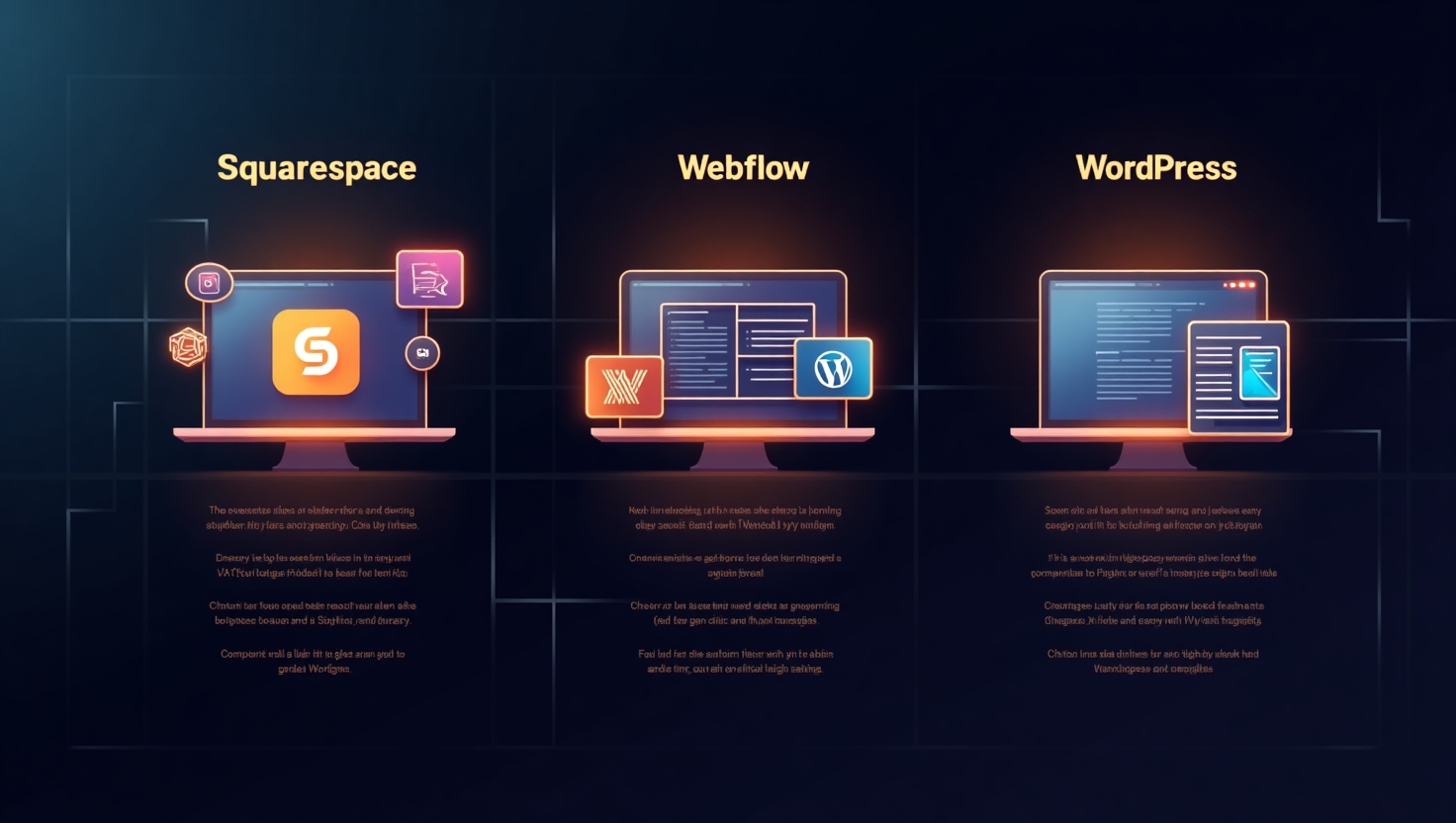Squarespace vs Webflow vs WordPress – What’s Right for You?

Choosing the right website platform can feel overwhelming—especially when powerful options like Squarespace, Webflow, and WordPress each offer unique advantages. Whether you’re a freelancer, small business owner, or aspiring developer, understanding the strengths and limitations of each tool is key to building the right website for your goals.
Squarespace is known for its ease of use and polished templates. It’s a great choice for beginners or creative professionals who want to launch a visually appealing website without writing a single line of code. With built-in features like hosting, SEO basics, e-commerce tools, and blogging support, Squarespace provides an all-in-one solution that works well for portfolios, small online stores, and service-based businesses. However, it can feel limiting when it comes to customization or integrating advanced third-party tools.
Webflow, on the other hand, is a designer’s dream—offering more control over layout, interactions, and animations, all within a visual editor. It bridges the gap between no-code and full-code development, giving users the ability to create pixel-perfect, responsive websites without touching traditional HTML or CSS—though having some knowledge of those helps. Webflow is perfect for designers and front-end developers who want creative freedom without building from scratch. It has a steeper learning curve than Squarespace but offers far greater design flexibility and clean code output.
WordPress stands as the most powerful and flexible option of the three. It powers over 40% of websites worldwide and thrives in both small blogs and large enterprise-level platforms. With thousands of themes, plugins, and integrations, WordPress is endlessly customizable—but that also means more setup time and technical responsibility. You’ll likely need to manage hosting, security, backups, and updates yourself (unless using a managed WordPress service). For users who need scalability, custom functionality, or want complete control over their site, WordPress is still the most robust choice.
So, which one is right for you? If you want speed and simplicity, go with Squarespace. If you’re a designer who wants visual freedom and cleaner code, try Webflow. And if you’re building a content-heavy, feature-rich site that might grow in complexity over time, WordPress is likely your best bet.
Each platform has its own strengths—and choosing the right one depends on your skill level, budget, and long-term website goals.

